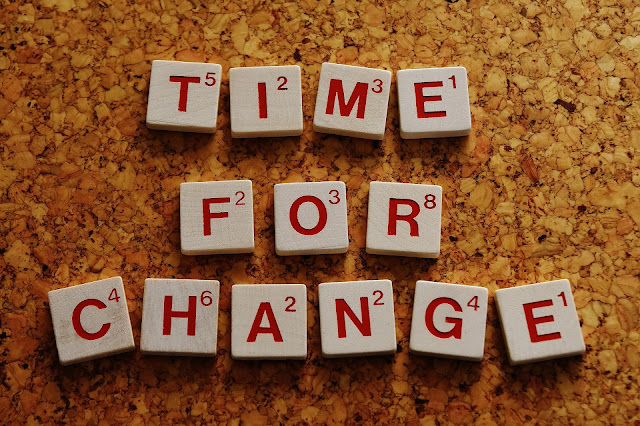Art And Practice As Failure
Failure. Is there a word more dreaded by artists?
Failure. Just the word can paralyze many working artists. Think about yourself, are there any projects in your history that have been left behind because you feared they would fail? I'm sure most of us can come up with at least 1 or 2. For some, we may have a whole warehouse full of self perceived failures.
Merriam Webster defines one aspect of failure as: lack of success, or a falling short. A big problem as artistic types, is focusing on this one aspect. We tend to see things as either, or. Either a great success, or, as a great failure. We rarely look at failure as something else, especially as an opportunity.
One big problem is this idea of either, or. In my experience, failure is rarely ever so black and white. It's always a matter of perspective and perception. For example, as a musician, I have had nights when I came off stage thinking I gave a horrible performance, only to be greated by people saying things like, “That was one of the best shows I've ever heard you play!” Conversely, I've played what I felt were some of my best performances, only to be met with indifference once I came off the stage.
How can this be?
Art, in all of its many variations, is such a personal and subjective thing. Try as we might to control what we do, we have no control over how other people perceive and respond to what we do. Think of any famous work of art, and look at how many people love it. Yet as many people may hate the same thing. The same thing with music. You may love one band, but your friend/spouse hates them!
The 1st thing to realize is that you can't please everybody. Let me repeat that: you can't please everybody. No one ever has created a work of art that was accepted and loved by every single person who came into contact with it. By realizing this you can take a great burden off of your shoulders.
Creating Beyond Failure
1) Change your perspective of failure from a lack of success to one of an opportunity to learn and grow. No great artist was ever born fully formed as a creative genius. They had to try out many things that didn't necessarily work out and become successful. But they used these failures as learning points.
2) Remove the idea of failure from your thoughts. Allow yourself to create without that idea of possible failure to lurk in the background. Feel free to take chances, wild chances if you are so inclined.
3) When you have a failure, instead of mourning it, or feeling intimidated by it, look at it objectively. Find what worked, and what didn't work. Learn from it and use what you learned in the future.
Failure is not an option.
It is an opportunity.
~ MB
Failure. Just the word can paralyze many working artists. Think about yourself, are there any projects in your history that have been left behind because you feared they would fail? I'm sure most of us can come up with at least 1 or 2. For some, we may have a whole warehouse full of self perceived failures.
Merriam Webster defines one aspect of failure as: lack of success, or a falling short. A big problem as artistic types, is focusing on this one aspect. We tend to see things as either, or. Either a great success, or, as a great failure. We rarely look at failure as something else, especially as an opportunity.
One big problem is this idea of either, or. In my experience, failure is rarely ever so black and white. It's always a matter of perspective and perception. For example, as a musician, I have had nights when I came off stage thinking I gave a horrible performance, only to be greated by people saying things like, “That was one of the best shows I've ever heard you play!” Conversely, I've played what I felt were some of my best performances, only to be met with indifference once I came off the stage.
How can this be?
Art, in all of its many variations, is such a personal and subjective thing. Try as we might to control what we do, we have no control over how other people perceive and respond to what we do. Think of any famous work of art, and look at how many people love it. Yet as many people may hate the same thing. The same thing with music. You may love one band, but your friend/spouse hates them!
The 1st thing to realize is that you can't please everybody. Let me repeat that: you can't please everybody. No one ever has created a work of art that was accepted and loved by every single person who came into contact with it. By realizing this you can take a great burden off of your shoulders.
“Works of art are indeed always products of having-been-in-danger, of having-gone-to-the-very-end in an experience, to where no man can go further. The further one goes, the more one's own, the more personal, the more unique an experience becomes, and the work of art, finally, is the necessary, irrepressible, most valid possible expression of this uniqueness.... Herein lies the tremendous help of the work of art for the life of the person who must make it: that it is his rallying of strength; the knot in the rosary at which his life speaks a prayer, the ever-recurrent proof of his unity and trueness, but directed only toward himself and to the outer world working anonymously, unnamed, as necessity only, as reality, existence.”
— Rainer Maria Rilke, Letters of Rainer Maria Rilke, 1892-1910
Creating Beyond Failure
1) Change your perspective of failure from a lack of success to one of an opportunity to learn and grow. No great artist was ever born fully formed as a creative genius. They had to try out many things that didn't necessarily work out and become successful. But they used these failures as learning points.
2) Remove the idea of failure from your thoughts. Allow yourself to create without that idea of possible failure to lurk in the background. Feel free to take chances, wild chances if you are so inclined.
3) When you have a failure, instead of mourning it, or feeling intimidated by it, look at it objectively. Find what worked, and what didn't work. Learn from it and use what you learned in the future.
Failure is not an option.
It is an opportunity.
~ MB




Comments
Post a Comment